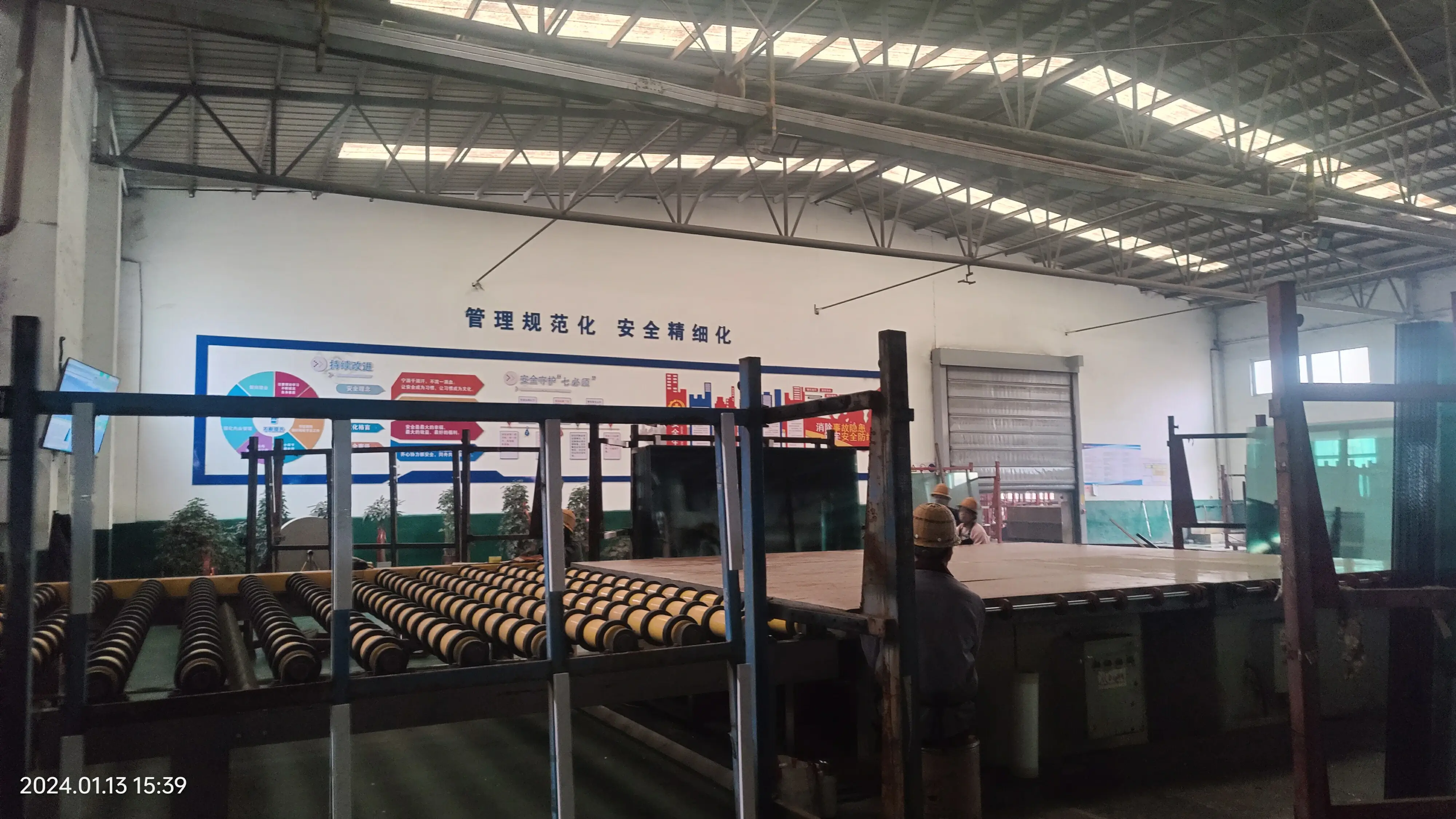

Understanding Mirror Glass Quality Key Factors and Considerations
Mirror glass is an essential component in various applications, from home decor to high-end optical instruments. The quality of mirror glass can significantly affect its performance, durability, and aesthetic appeal. This article delves into the key factors that determine the quality of mirror glass, helping consumers and manufacturers alike understand what to look for.
1. Reflectivity
The most critical attribute of mirror glass is its reflectivity. High-quality mirror glass should have a reflectivity of at least 90-95%. This high level of reflectivity ensures that the surface provides a clear and crisp image. Factors influencing reflectivity include the thickness of the glass, the type of reflective coating applied, and the quality of the glass itself. Silver coatings are the most common and offer excellent performance, although aluminum and other coatings may be used in specific applications.
2. Coating Process
The coating process is crucial in determining the quality of mirror glass. Mirrors are typically coated using vacuum deposition methods, where the reflective material is applied under controlled conditions. This process results in a uniform, high-quality finish that enhances durability and performance. Cheaper mirrors often utilize spray coatings, which can lead to inconsistent reflectivity, a milky appearance, or premature tarnishing. When considering mirror glass, it's essential to inquire about the coating process used to ensure longevity and quality.
3. Glass Thickness
The thickness of the glass influences both durability and image quality. Thicker glass mirrors are more robust and resistant to warping or breakage. They are also less likely to distort the reflected image. Standard thickness for mirror glass is usually around 1/8 inch (about 3mm), but premium mirrors can be thicker. For applications requiring exceptional durability, such as in public spaces or commercial environments, opting for thicker glass is advisable.
4. Flatness

Flatness is a critical factor in mirror glass quality. Any distortion in the glass can result in an altered reflection, making it essential for mirrors to have a perfectly flat surface. High-quality mirror glass typically undergoes stringent testing to ensure it meets flatness standards. A flat mirror provides a true representation of the reflected image, while any deviations can lead to visual distortions, especially in applications like makeup mirrors or optical equipment.
5. Surface Treatments
Surface treatments also play a significant role in mirror quality. High-quality mirrors often feature protective coatings that enhance scratch resistance and reduce the likelihood of tarnishing. These treatments can also protect against moisture and other environmental factors that might degrade the reflective surface over time. When selecting mirror glass, look for products that mention surface treatments to ensure they are built to last.
6. Manufacturer Reputation
The reputation of the manufacturer can be a strong indicator of mirror glass quality. Established brands with a history of producing high-quality glass products often adhere to strict quality control processes and use superior materials. Researching customer reviews and asking for recommendations can significantly aid in selecting a reliable manufacturer.
7. Application Suitability
Lastly, consider the intended application of the mirror glass. Different settings—such as residential, commercial, or industrial—may have varying requirements. For instance, bathroom mirrors need to withstand humidity, while decorative mirrors might prioritize aesthetic appeal. Aligning the characteristics of the mirror glass with its intended use can ensure optimal performance and longevity.
Conclusion
In conclusion, mirror glass quality is determined by various factors, including reflectivity, coating process, glass thickness, flatness, surface treatments, manufacturer reputation, and application suitability. By understanding these elements, consumers can make informed choices that lead to better performance and satisfaction. Whether for decorative purposes or practical applications, investing in high-quality mirror glass is essential for achieving the desired results.